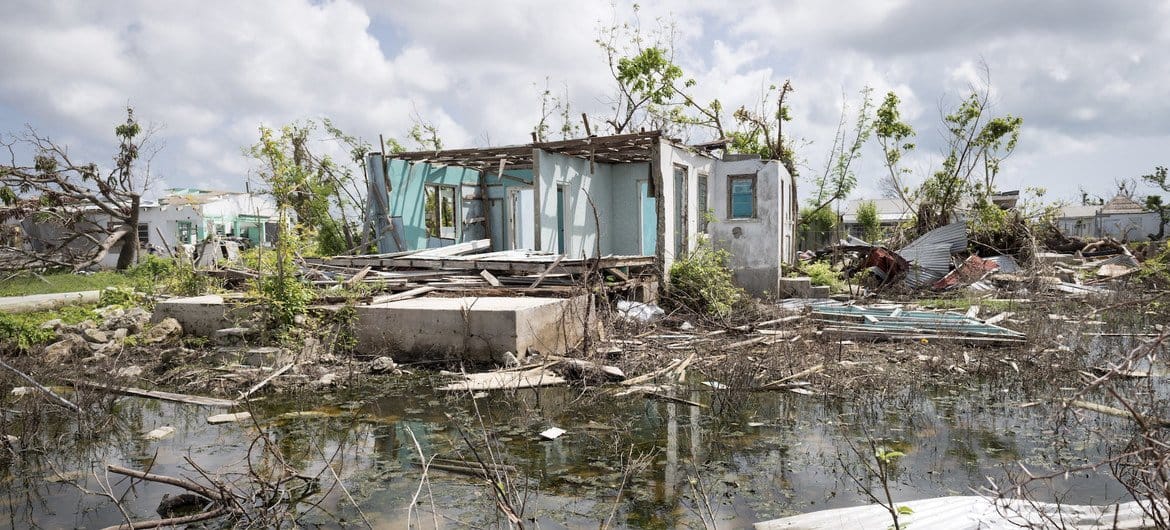
CLICK HERE TO JOIN OUR WHAT’S APP GROUP
As countries face increasingly steep bills from natural hazards, the true cost of disasters is actually 10 times higher than previously estimated, with far-reaching effects across healthcare, housing, education and employment.
That’s according to a report released Tuesday by the UN’s disaster risk reduction agency, UNDRR.
While current estimates suggest the global economic impact of natural emergencies – such as earthquakes, landslides and floods – amounts to around $200 billion annually, this figure represents “only a fraction of the real costs,” said Jenty Kirsch-Wood, head of global risk analysis for UNDRR.
The true cost is closer to $2.3 trillion, she added, warning that the world has been “chronically underestimating and undermeasuring the impact of disasters” on sustainable development progress.
Catastrophic floods
A person born in 1990 has a 63 per cent chance of experiencing a once-in-a-century catastrophic flood in their lifetime. For a child born in 2025, that probability rises to 86 per cent.
“Those events are affecting us all,” said Ms. Kirsch-Wood.
The cost of extreme weather is not measured solely in destroyed infrastructure, but also in lost years of health, education and opportunity.

Unsustainable humanitarian response
Healthcare, education, and employment are increasingly disrupted by emergencies, leading to higher national debt and slower recovery – particularly in already vulnerable countries.
This has contributed to “an unsustainable and unsupportable humanitarian response,” Ms Kirsch-Wood added, as nations grapple with increasingly frequent and severe climate shocks.

Source:
UNDRR using data from EM-DAR, CRED/UCLouvain, 2025, Brussels, Belgium.
Losses have doubled
According to UNDRR, financial losses from disasters have doubled in the past two decades.
The agency’s new report outlines how the international community can collaborate to make sustainable investments that build resilience to future disasters and ease pressure on public finances.
Most of the damage caused by climate-related events is preventable, Ms. Kirsch-Wood stressed.
The challenge ahead, she said, is to “better align our financing systems” and “use public and private investment to make sure that we’re optimally reducing the burden on governments.”
Nearly 240 million people were internally displaced by disasters between 2014 and 2023.
China and the Philippines each reported over 40 million displaced persons, while India, Bangladesh and Pakistan saw numbers ranging from 10 to 30 million.
The steep costs associated with climate events – and the debt they generate – disproportionately affect developing countries and vulnerable populations.

Source:
UNDRR using CRED and UCLouvain, 2025.
Vulnerable hardest-hit
In 2023, North America recorded $69.57 billion in direct disaster-related losses – more than any other region – but this amounted to just 0.23 per cent of its Gross Domestic Product (GDP).
By contrast, Micronesia incurred only $4.3 billion in losses, but this represented a staggering 46.1 per cent of its GDP.
The UNDRR report “shows the eye-watering losses inflicted by disasters today, which hit vulnerable people the hardest… and it demonstrates that, on our current trajectory, costs will continue to mount as the climate crisis worsens,” said UN Secretary-General António Guterres.
“But it also illustrates that, by boosting and sustaining investment in disaster risk reduction and prevention, we can slow that trend and reap economic benefits – saving lives and livelihoods while driving growth and prosperity to help reach our Sustainable Development Goals.”
Private sector role
Proven tools – such as flood protection infrastructure and early warning systems – can help the worst-affected nations curb the rising costs of climate-related disasters.
Increased investment in risk reduction and resilience can reverse current trends, said the head of UNDRR, Special Representative Kamal Kishore, citing the example of protection from overflowing rivers.
“When riverbank communities have access to scientific tools for land use planning, resources for building flood protection systems, and early warning systems, they not only reduce damages and losses from floods, but also create conditions for prosperity and sustainable growth in their communities,” he said.
The private sector, UNDRR emphasised, must also step up to “fill the protection gap that leaves many countries in a worsening spiral of repeated disasters.”
Soundcloud
CLICK HERE TO JOIN OUR WHAT’S APP GROUP
CLICK HERE TO JOIN OUR WHAT’S APP GROUP
CLICK HERE TO JOIN OUR WHAT’S APP GROUP
CLICK HERE TO JOIN OUR WHAT’S APP GROUP
CLICK HERE TO JOIN OUR WHAT’S APP GROUP
CLICK HERE TO JOIN OUR WHAT’S APP GROUP
CLICK HERE TO JOIN OUR WHAT’S APP GROUP
CLICK HERE TO JOIN OUR WHAT’S APP GROUP
Advertise with the mоѕt vіѕіtеd nеwѕ ѕіtе іn Antigua!
We offer fully customizable and flexible digital marketing packages.
Contact us at [email protected]

















This confirms what we’ve been experiencing on the ground. The emotional, social, and financial toll is massive and often goes unreported.
One likkle storm mash up mi whole crop, and mi still nuh recover. Now dem a tell we it worse than we even think? Mi believe dem.
I think this data should shift how international bodies and lenders evaluate vulnerability. Our debt burdens can’t be separated from climate shocks.
Mi glad di UN finally catching up. We deh feel it long time. Time fi some real support now!
Every hurricane season mi heart skip beat. Now dem confirm say di cost sky high? We need serious backup from di big countries.
Comments are closed.